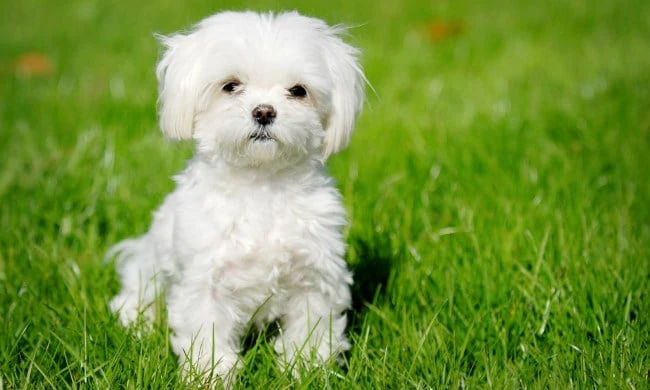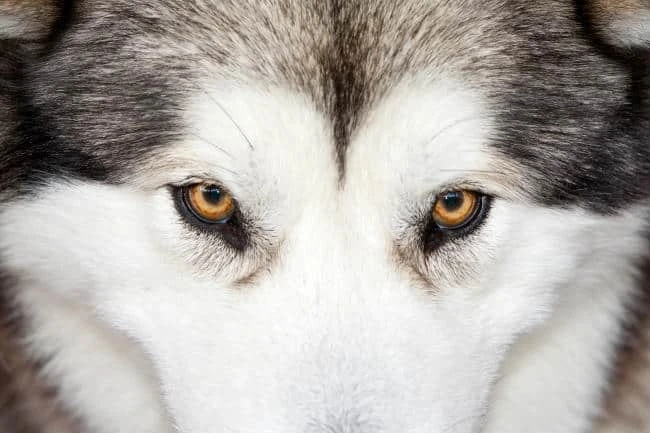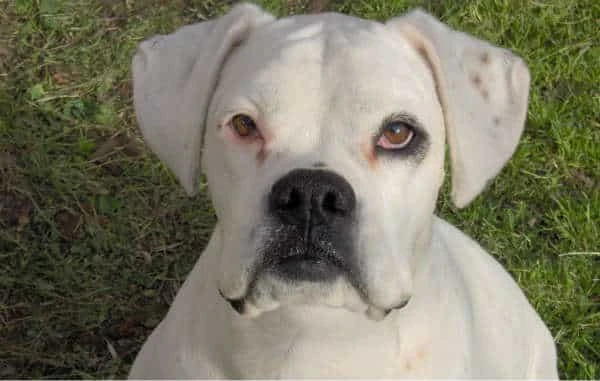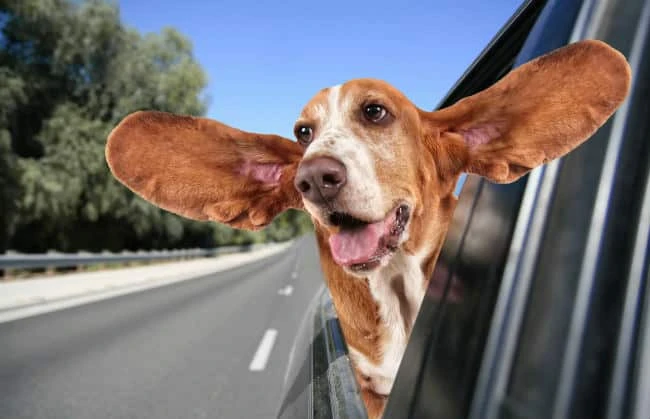Canine Enlarged Prostate: A Guide to the Causes & Symptoms
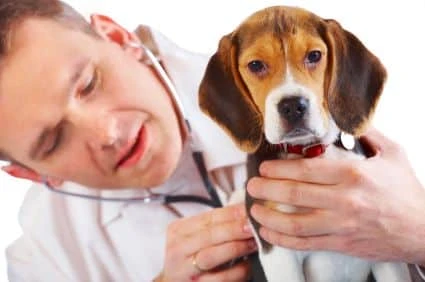
A canine enlarged prostate is a very upsetting and actually very common condition found in some older dogs (we will go into some detail in relation to the causes and symptoms of this condition later – which can include extreme constipation and in really severe cases a condition called Peritonitis).
The Prostate Gland works in a very similar way in dogs as it does in humans. This gland is utilized by a dog for breeding – although as a sex gland it does not produce or manufacture Sperm it does produce a fluid that is ejaculated at the same time as the Sperm during breeding. The Prostate fluid actually makes up a large proportion of the Sperm and is used to keep the Sperm healthy and well nourished.
Because Sperm is only produced in small amounts to make it easier (and faster) for the Sperm to pass from the dog’s Testicles to the females Ovaries the Prostate fluid will bulk up the small amount of Sperm. The journey from the testicles to the female Ovaries is made easier through the female dog’s muscle contraction of the Uterus, Cervix and Urethra.
Canine Enlarged Prostate – The Facts
As previously mentioned an enlarged Prostate is a very common condition found in older dogs. It is not uncommon for men as they get older (especially as they reach the age of eighty years of age) to develop Prostate Cancer (in fact the risks of an eighty year old man developing the disease are increased by as much as eighty percent)! This percentage probability is also the same in dogs (although cases of Prostate Cancer in dogs is quite rare – other problems with the gland are very common as a dog ages).
Although an enlarged prostate in dogs is often directly attributable to old age (as previously mentioned) there are other causes including…
1. Benign Prostatic Hyperplasia
2. Hormones
3. Bacterial infections either through through the blood or urinary tract.
The Symptoms of a Canine Enlarged Prostate
The symptoms of an nlarged prostate gland can include…
1. Pain when urinating – the reason a dog may find it difficult and painful to urinate is because due to the enlarged Prostate becoming swollen this will reduce the size of the Urethra which will then make it more difficult for the urine to pass through – thus causing pain. Your dog may continue to strain when attempting to urinate and the more he strains the more pressure this puts on the Prostate which will then cause more and more pain.
2. Pain when pooping – this is a relatively common problem with an enlarged prostate mainly because of the position that the gland is located i.e just below the Rectum.
The swollen Prostate will put pressure on the Rectum which will then put pressure on the Canal running through the Pelvis. The poop will then form in the Large Intestine and due to the restricted space the dog will have to repeatedly strain when attempting to poop putting more and more pressure on the Prostate causing intense pain and extreme constipation.
3. A dog with an enlarged Prostate may also walk strangely – this is mainly because the dog will not want to cause excess stress and pain to the gland – you may notice that your dog walks with stiff and very straight back legs. You may also notice that your dog takes very small steps when walking.
4. Peritonitis – although this condition is very rare it can occur in severe cases of Prostate disease. Peritonitis occurs when bacteria escapes from the Prostate and enters the abdominal cavity.
5. Your dog may also experience discharge and yellow pus and even blood leaking from the Penis. This is a very easy symptom to notice due to the obvious symptoms your dog will exhibit.
There are a variety of common causes of an enlarged Prostate in dogs including…
Bacterial Infection – An enlarged prostate can be caused by bacterial infections – this might occur when your dog has a urinary tract infection and the infection has reached the Prostate (through the Urethra and into the Prostate). Infection can also cause the Prostate Gland to become infected via the blood system.
A bacterial infection affecting your dog will either be diagnosed as Acute or Chronic. The Acute version of this condition is extremely painful and the bacteria may also spread to other areas and organs within your dog’s body. Due to the bacteria affecting other areas of your dog’s anatomy your dog may develop a fever or other nasty symptoms depending on the area (or organs that have become infected).
It is very important that you take your dog to the vet asap – the reason for this is that if the symptoms are affecting other areas of your dog it is important that the Vet knows exactly what has caused the bacterial infection and where it started i.e. in the Prostate (so the Vet can concentrate his or her efforts in that specific area).
A Chronic bacterial infection can go on for years and years – basically the infected Prostate will continue to pass infected bacteria through the Urethra causing repeated bladder infections. It is also possible for Cysts to develop within the Gland due to a build up of Pus. Although the Chronic version is less painful than the Acute version it is very problematic to treat mainly because the Prostate Gland will develop scar tissue with bacteria finding places to colonize and develop.
Cancer
Cancer is another cause of an enlarged prostate (although it is actually quite rare in dogs). Cancer is normally spread to other organs such as the Liver, Lungs, Kidney, Bladder or Prostate via the blood. The Cancer can also spread to the Lymph Nodes and then the Back and Pelvis. Although some relief is possible through Radiation (this is a a short term fix as there is no known cure of canine Prostate Cancer).
BPH (Benign Prostatic Hyperplasia).
This is without doubt the most common cause of an enlarged Prostate in dogs (and prostate disease). This condition is normally caused through the natural process of getting old (aging). As the Prostate Gland becomes older it also become larger (Hypertrophy). Through the natural aging process not only does this increase the size of the Prostate but more cells occur in the Prostate Glandular Tissue. Nearly all dogs that are getting old or at the very least are over the age of four or five years old the Prostate will become larger. This can bring with it some pain and difficulty when walking.
Prostate Cancer in Dogs: Diagnosis, Treatment and Prevention…
The diagnosis of an enlarged Prostate is normally achieved through a rectal examination – through the Vet placing two fingers up the Rectum and then checking to see if the gland has become enlarged.
It is also possible to check through a microscopic examination of the urine as the urine may have more cells present than normal (caused by the enlarged gland).
Prevention
It is important to mention that 90% of all dogs can be prevented from problems affecting the Prostate by being neutered (castrated) before a dog is one year of age.
Any treatment for this condition can be very expensive with treatment lasting weeks. Any treatment that is offered can involve a dog being catheterized, involve an enema, injections, medications and even surgery.
More Facts about an Enlarged Prostate in Dogs…
It is not uncommon for dog with n enlarge Prostate to experience pain when defecating or when they urinate.
This is because the Prostate is a gland found in the male reproductive system. The gland is found circling the urethra (this is the tube that carries urine from the body).
The gland is found near the rectum. This is why when it becomes enlarged that it can cause problems with urinating and pooping. An enlarged Prostate is sometimes found in non-neutered males (this is why castration is sometimes used as one of the treatments). Of course Cancer and infections can also cause the Prostate to become enlarged.
A Holistic Approach to Treating an Enlarged Prostate.
Herbal remedies such as Palmetto, Nettle and Hydrangea can be used for an enlarged Prostate.
Homeopathic remedies can also be useful at treating the condition including Sabal Serrulata, Conium, Zinc and Vitamin B. Adding flaz seed oil to the diet can also be beneficial.

